Industry News
This page contains topics based on industry news therefore it is not related to our products

Alcohol Sales Plummet as Cannabis Market Booms
In a striking turn of events, recent data from Statistics Canada reveals a historic drop in alcohol sales across the country, coinciding with a robust surge in legal cannabis revenue. This...
Alcohol Sales Plummet as Cannabis Market Booms
In a striking turn of events, recent data from Statistics Canada reveals a historic drop in alcohol sales across the country, coinciding with a robust surge in legal cannabis revenue. This...

Italy’s Hemp Industry Stalls Amid Legal Uncerta...
The future of Italy's hemp sector hangs in the balance after another delay from the European Commission on responding to controversial restrictions proposed by the Italian government. This delay comes...
Italy’s Hemp Industry Stalls Amid Legal Uncerta...
The future of Italy's hemp sector hangs in the balance after another delay from the European Commission on responding to controversial restrictions proposed by the Italian government. This delay comes...

Scots Increasingly Choose Private Cannabis Pres...
Scotland’s legal cannabis industry has reached a significant milestone, with a record number of people choosing to purchase legal cannabis products privately. As NHS waiting lists continue to cause delays...
Scots Increasingly Choose Private Cannabis Pres...
Scotland’s legal cannabis industry has reached a significant milestone, with a record number of people choosing to purchase legal cannabis products privately. As NHS waiting lists continue to cause delays...

Colombia’s President Pushes for Cannabis Legali...
Colombia’s president calls for cannabis legalization Colombian President Gustavo Petro has once again voiced his support for the legalization of cannabis, urging lawmakers to take action. In a recent statement,...
Colombia’s President Pushes for Cannabis Legali...
Colombia’s president calls for cannabis legalization Colombian President Gustavo Petro has once again voiced his support for the legalization of cannabis, urging lawmakers to take action. In a recent statement,...
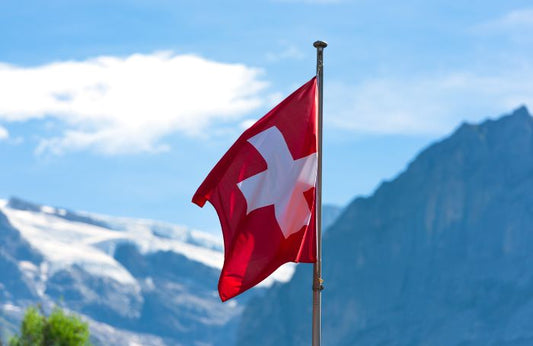
Switzerland Moves to Legalize Cannabis Under St...
Switzerland is on the cusp of a significant shift in its cannabis policy. The National Council's Social Security and Health Committee (SGK-N) has recently endorsed a draft law that would permit...
Switzerland Moves to Legalize Cannabis Under St...
Switzerland is on the cusp of a significant shift in its cannabis policy. The National Council's Social Security and Health Committee (SGK-N) has recently endorsed a draft law that would permit...

French Mayor Urges National Vote on Cannabis Le...
French Mayor Calls for National Referendum on Cannabis Legalization Éric Piolle, the mayor of Grenoble, has publicly urged French President Emmanuel Macron to initiate a national referendum on the legalization...
French Mayor Urges National Vote on Cannabis Le...
French Mayor Calls for National Referendum on Cannabis Legalization Éric Piolle, the mayor of Grenoble, has publicly urged French President Emmanuel Macron to initiate a national referendum on the legalization...

Spain Moves Closer to Medical Cannabis Regulation
Spain Moves Closer to Medical Cannabis Regulation Spain is on the verge of implementing long-awaited regulations for medical cannabis, with lawmakers expected to approve a new measure before the summer...
Spain Moves Closer to Medical Cannabis Regulation
Spain Moves Closer to Medical Cannabis Regulation Spain is on the verge of implementing long-awaited regulations for medical cannabis, with lawmakers expected to approve a new measure before the summer...
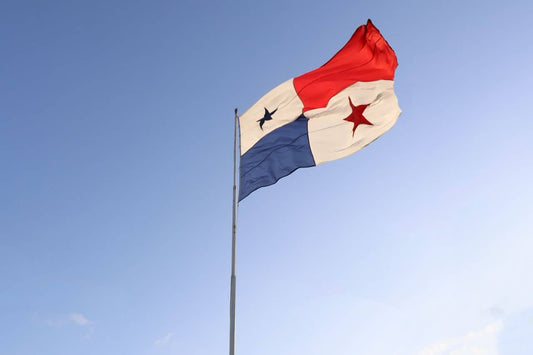
Panama Approves Hemp Law, Boosting Economic Growth
Panama Passes Long-Awaited Hemp Legislation After years of deliberation, Panama's National Assembly has approved a landmark bill to regulate hemp cultivation, processing, and trade. This long-awaited legislation, spearheaded by independent...
Panama Approves Hemp Law, Boosting Economic Growth
Panama Passes Long-Awaited Hemp Legislation After years of deliberation, Panama's National Assembly has approved a landmark bill to regulate hemp cultivation, processing, and trade. This long-awaited legislation, spearheaded by independent...
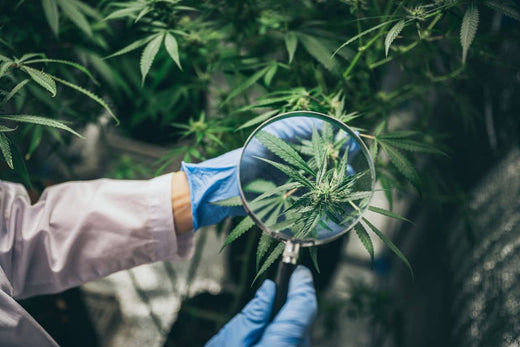
Cannabis Investment Opportunities and Trends fo...
Key Cannabis Investment Trends to Watch in 2025 The cannabis industry continues to evolve rapidly, making 2025 a pivotal year for investors aiming to capitalize on new opportunities. Understanding market...
Cannabis Investment Opportunities and Trends fo...
Key Cannabis Investment Trends to Watch in 2025 The cannabis industry continues to evolve rapidly, making 2025 a pivotal year for investors aiming to capitalize on new opportunities. Understanding market...

Morocco’s Cannabis Industry Achieves Record Growth
Morocco’s Cannabis Industry: A Booming Success in 2024 In a groundbreaking year, Morocco’s legal cannabis industry has achieved unprecedented growth, producing a staggering 4,000 tons in 2024. This development underscores Morocco's commitment...
Morocco’s Cannabis Industry Achieves Record Growth
Morocco’s Cannabis Industry: A Booming Success in 2024 In a groundbreaking year, Morocco’s legal cannabis industry has achieved unprecedented growth, producing a staggering 4,000 tons in 2024. This development underscores Morocco's commitment...
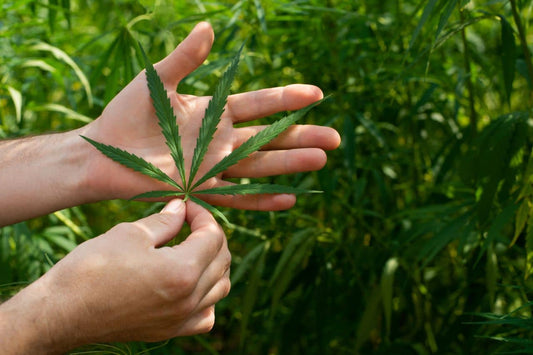
India and South Korea Forge Innovative Hemp Par...
India and South Korea Partner to Boost Hemp Textiles The textile industries of India and South Korea have embarked on an ambitious journey to leverage the potential of hemp in...
India and South Korea Forge Innovative Hemp Par...
India and South Korea Partner to Boost Hemp Textiles The textile industries of India and South Korea have embarked on an ambitious journey to leverage the potential of hemp in...
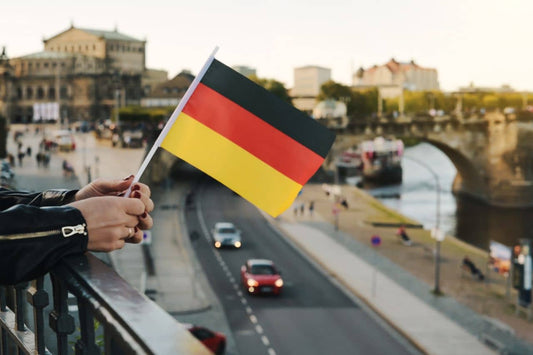
Germany Moves Forward with Cannabis Research Ov...
Germany Advances Cannabis Research Through Federal Oversight Germany has taken a significant step in its cannabis legalization process by designating the Federal Office for Agriculture and Food (BLE) to oversee...
Germany Moves Forward with Cannabis Research Ov...
Germany Advances Cannabis Research Through Federal Oversight Germany has taken a significant step in its cannabis legalization process by designating the Federal Office for Agriculture and Food (BLE) to oversee...

South Africa’s First Accredited Cannabis Course...
South Africa Pioneers First Accredited Cannabis Course In a significant step for cannabis education, South Africa has officially launched its first accredited higher education program dedicated to cannabis production and...
South Africa’s First Accredited Cannabis Course...
South Africa Pioneers First Accredited Cannabis Course In a significant step for cannabis education, South Africa has officially launched its first accredited higher education program dedicated to cannabis production and...

Regulated Cannabis Sales Policy Evolves in the ...
Regulated Cannabis Sales Policy Evolves in the Netherlands The Netherlands has long been associated with its unique approach to cannabis. Now, as part of an ongoing pilot experiment, significant policy...
Regulated Cannabis Sales Policy Evolves in the ...
Regulated Cannabis Sales Policy Evolves in the Netherlands The Netherlands has long been associated with its unique approach to cannabis. Now, as part of an ongoing pilot experiment, significant policy...

Medical Cannabis Testing in France Extended to ...
France Extends Medical Cannabis Trial to 2025 France has once again extended its ongoing medical cannabis trial, granting an additional six months for the program to continue until July 31,...
Medical Cannabis Testing in France Extended to ...
France Extends Medical Cannabis Trial to 2025 France has once again extended its ongoing medical cannabis trial, granting an additional six months for the program to continue until July 31,...

Texas THC Laws: Key Insights from Senate Bill 3...
Texas Senate Bill Aims to Restrict THC Products Texas lawmakers have introduced Senate Bill 3, aiming to tighten restrictions on THC products available in the state. Championed by Senator Charles...
Texas THC Laws: Key Insights from Senate Bill 3...
Texas Senate Bill Aims to Restrict THC Products Texas lawmakers have introduced Senate Bill 3, aiming to tighten restrictions on THC products available in the state. Championed by Senator Charles...

Czech GPs Set to Prescribe Medical Cannabis in ...
Czech general practitioners to prescribe medical cannabis by 2025 The Czech Republic is taking a monumental step in healthcare reform by enabling general practitioners (GPs) to prescribe medical cannabis starting...
Czech GPs Set to Prescribe Medical Cannabis in ...
Czech general practitioners to prescribe medical cannabis by 2025 The Czech Republic is taking a monumental step in healthcare reform by enabling general practitioners (GPs) to prescribe medical cannabis starting...
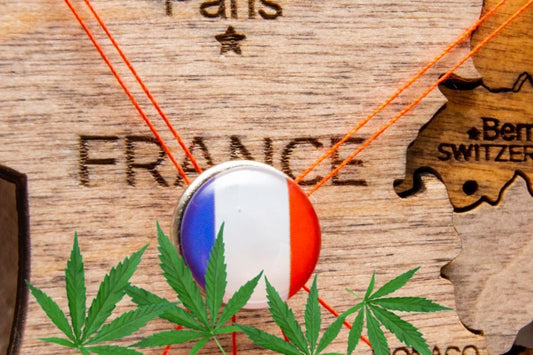
2025 Cannabis Legalization: LFI’s Strategy Agai...
LFI's Bold Move to Address Organized Crime in France In response to the escalating violence linked to organized crime in France, the left-wing political group La France Insoumise (LFI) has...
2025 Cannabis Legalization: LFI’s Strategy Agai...
LFI's Bold Move to Address Organized Crime in France In response to the escalating violence linked to organized crime in France, the left-wing political group La France Insoumise (LFI) has...
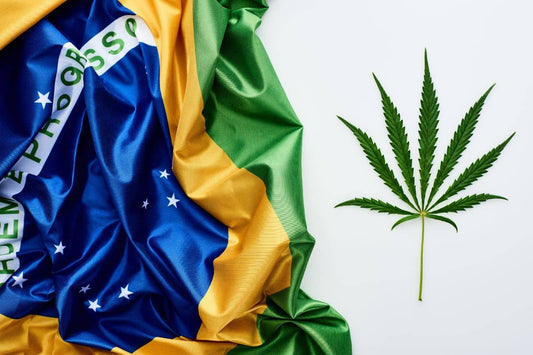
Brazil’s Medical Cannabis Market Grows 22% in 2024
Brazil’s Medical Cannabis Market Sees 22% Growth in 2024 The medical cannabis sector in Brazil continues to thrive, marking a significant 22% growth in 2024. This expansion highlights the growing...
Brazil’s Medical Cannabis Market Grows 22% in 2024
Brazil’s Medical Cannabis Market Sees 22% Growth in 2024 The medical cannabis sector in Brazil continues to thrive, marking a significant 22% growth in 2024. This expansion highlights the growing...

Brazil Approves Cannabis-Based Products for Vet...
Brazil Approves Cannabis-Based Products for Veterinary Use In a landmark decision, Brazil has recently amended its regulatory framework to permit the use of cannabis-based products for animals, with the primary...
Brazil Approves Cannabis-Based Products for Vet...
Brazil Approves Cannabis-Based Products for Veterinary Use In a landmark decision, Brazil has recently amended its regulatory framework to permit the use of cannabis-based products for animals, with the primary...
